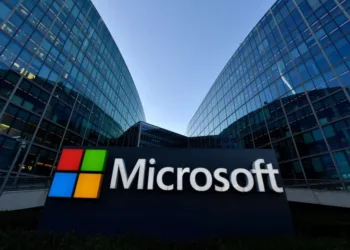On January 19, 2025, TikTok was officially removed from the U.S. App Store, following a government-mandated ban that has disrupted millions of American users. Apple, responding to the U.S. government’s request, took the step of making TikTok unavailable for new downloads on iPhones and iPads. While the app is still functional in other parts of the world, this move signals a turning point in the ongoing debate about TikTok’s security concerns, particularly its ties to China.
Table of Contents
Why Was TikTok Banned in the U.S.?
The ban stems from rising national security concerns about the app’s data collection practices. U.S. officials have expressed fears that TikTok, owned by the Chinese tech giant ByteDance, could potentially share sensitive user data with the Chinese government. The app’s data-tracking capabilities have raised red flags, with critics arguing that the Chinese government could exploit this access for surveillance purposes. Despite ongoing discussions and the platform’s attempts to address these concerns—including talks of selling the app to an American company—the U.S. government ultimately decided to move forward with the ban.
In April 2024, President Biden signed a law requiring ByteDance to sell TikTok or face a U.S. ban. ByteDance’s lawsuit against this law failed, leading to TikTok going dark on January 18, 2025, as mandated by the Supreme Court. The law aims to mitigate perceived threats to American security by reducing foreign influence over major digital platforms. However, some critics believe the ban is politically motivated, pointing to growing geopolitical tensions between the U.S. and China.

What Does the Ban Mean for U.S. Users?
For U.S.-based TikTok users, the consequences of the ban are clear: the app is no longer available for download from the Apple App Store, and those who had already installed the app will find it “temporarily unavailable.” This decision from Apple is a direct response to the government’s mandate, and it has left many users disappointed and frustrated. TikTok was one of the most downloaded apps in the U.S., with over 170 million active users, making its removal a significant event in the digital landscape.
In a statement, TikTok informed its U.S. users of the ban, adding that the app would be unavailable until further notice. This move highlights the tension between the tech industry and government security concerns, as TikTok’s massive user base in the U.S. now faces an uncertain future. For many, TikTok became a space for creativity, self-expression, and social connection, making its absence feel particularly impactful. Some users have turned to VPNs and other methods to bypass the ban, but these solutions remain unreliable and are illegal in certain jurisdictions.
Could TikTok Return to the U.S.?
While the TikTok ban has caused an uproar, there may still be a glimmer of hope for U.S. users. Former President Trump, who will soon return to office, has indicated his intention to resolve the situation and potentially restore access to TikTok. With the possibility of a 90-day reprieve under the new administration, there is speculation that TikTok could be given another chance in the U.S.—but only if changes are made to the app’s structure and its ownership. Trump has expressed interest in striking a deal that would involve a U.S.-based company acquiring a controlling stake in TikTok, which could alleviate national security concerns while allowing the app to remain operational in the U.S.
The Biden administration’s position on TikTok has been clear: the app should remain available in the U.S., but with a shift toward American ownership to ease security concerns. However, the lack of clear action from the current administration has led to uncertainty, prompting TikTok to make the app unavailable until further clarification is provided. The ongoing back-and-forth between political factions has only intensified the confusion, leaving users wondering whether they’ll ever regain access to the app.

Apple’s Role in the TikTok Ban
As one of the world’s largest tech companies, Apple’s role in removing TikTok from its App Store is significant. By complying with the U.S. government’s ban, Apple has effectively cut off new users from accessing the platform, making it impossible for anyone in the U.S. to download the app. Apple’s decision has further fueled the debate over the intersection of government regulation, security, and consumer access to popular digital platforms.
While Apple has removed TikTok from the U.S. App Store, the company has not taken similar action in other countries. This highlights the regional nature of the ban, which is focused solely on the U.S. market. Apple’s decision to comply with the government’s request has raised questions about the balance between user access and national security. The move also calls attention to the increasing role of tech giants in enforcing government policies on a global scale. Critics have argued that this places undue power in the hands of companies like Apple, raising concerns about the potential for overreach and the suppression of free speech.
What’s Next for TikTok?
The future of TikTok in the U.S. is still in limbo. As discussions continue between TikTok’s parent company ByteDance, the U.S. government, and various tech companies, it remains unclear whether the app will return to the U.S. market. TikTok is working hard to resolve the issues surrounding its security practices and ownership, but the lack of clarity from the Biden administration has made it difficult to reach a resolution. The company has also been exploring ways to localize its data practices and increase transparency, but whether these efforts will be sufficient to satisfy regulators remains uncertain.
TikTok’s vast popularity in the U.S.—with over 170 million users—makes it a significant player in the social media landscape. If the platform is unable to return to the U.S. market, it could have wide-ranging implications for both American consumers and the broader tech industry. TikTok’s ban could pave the way for other governments to take similar actions, leading to a fragmented global digital ecosystem where platforms are forced to comply with regional regulations.
The TikTok controversy also raises broader questions about the future of tech regulation, data privacy, and the role of foreign companies in U.S. digital infrastructure. As tensions between the U.S. and China continue to escalate, the TikTok case may set a precedent for how governments around the world approach the intersection of tech, security, and geopolitics.
Conclusion: What You Need to Know About TikTok’s Ban in the U.S.
The removal of TikTok from the U.S. App Store by Apple is a major development in the ongoing controversy surrounding the app’s security concerns. While the ban has caused frustration for U.S. users, there is still hope that the situation could be resolved, particularly with the new administration under President Trump. Until then, TikTok remains unavailable in the U.S., leaving millions of users wondering what the future holds for this once-popular platform.
The ban marks a turning point in the debate over tech regulation, data privacy, and the role of foreign influence in American digital spaces. With so much at stake, the outcome of TikTok’s legal battle could shape the future of the social media landscape for years to come. Stay tuned for updates as we continue to monitor the situation and bring you the latest news on TikTok’s uncertain future in the U.S. market.








